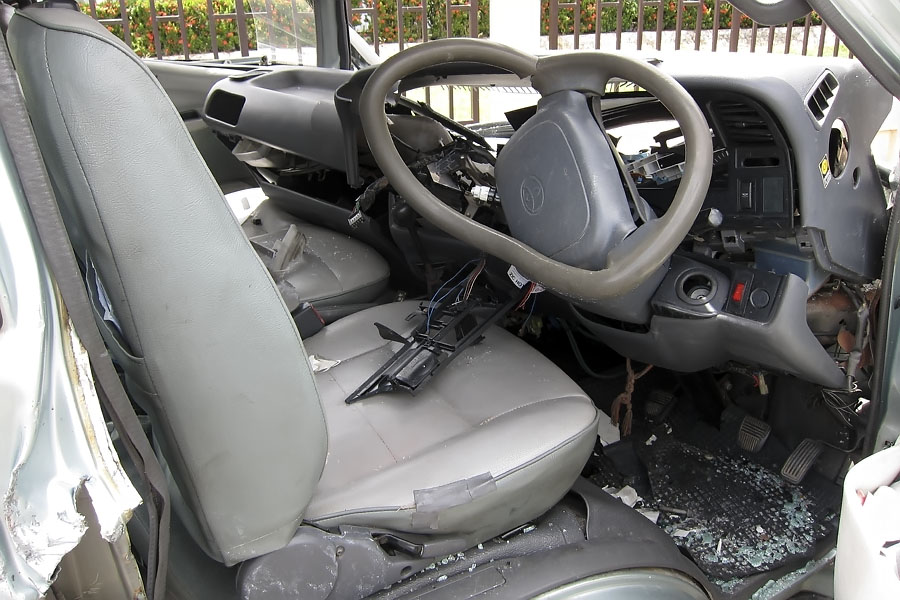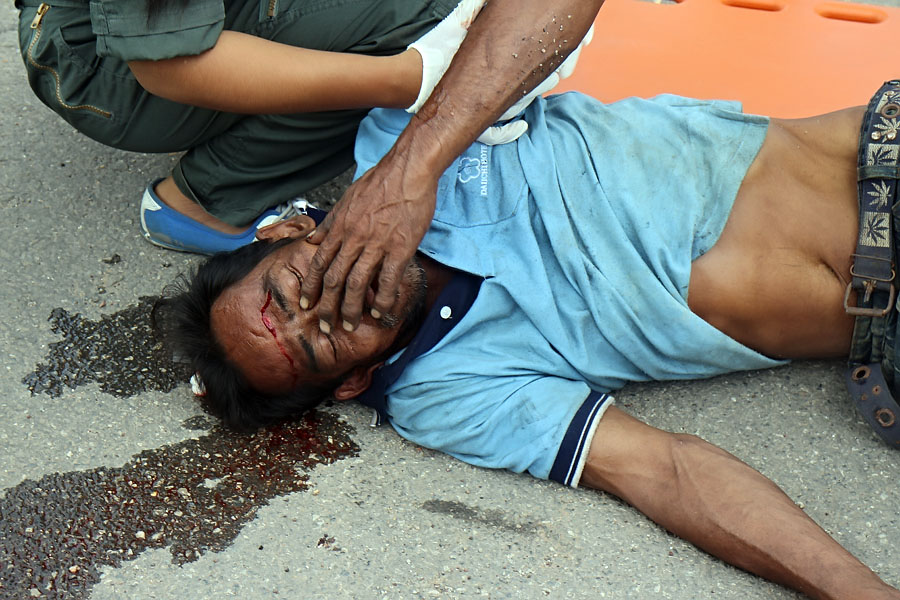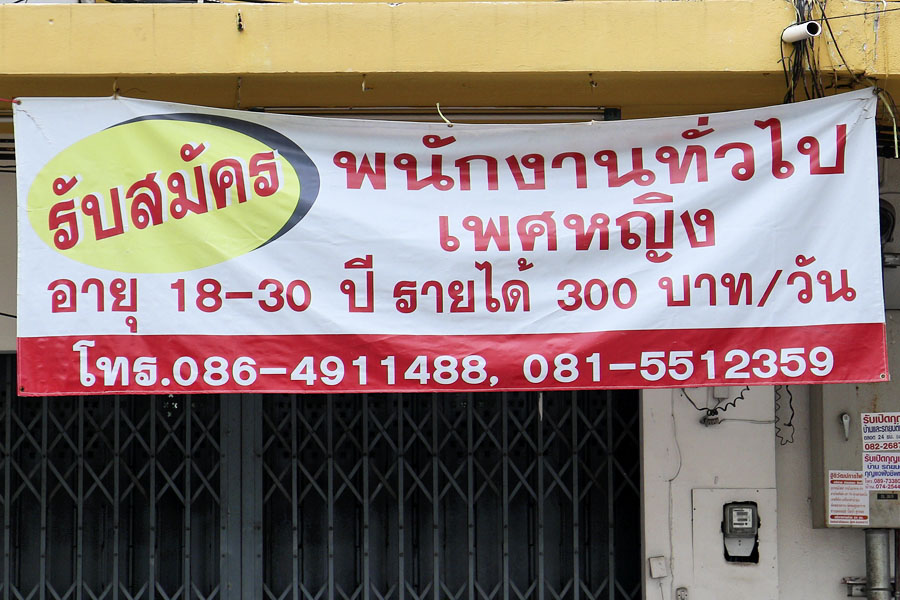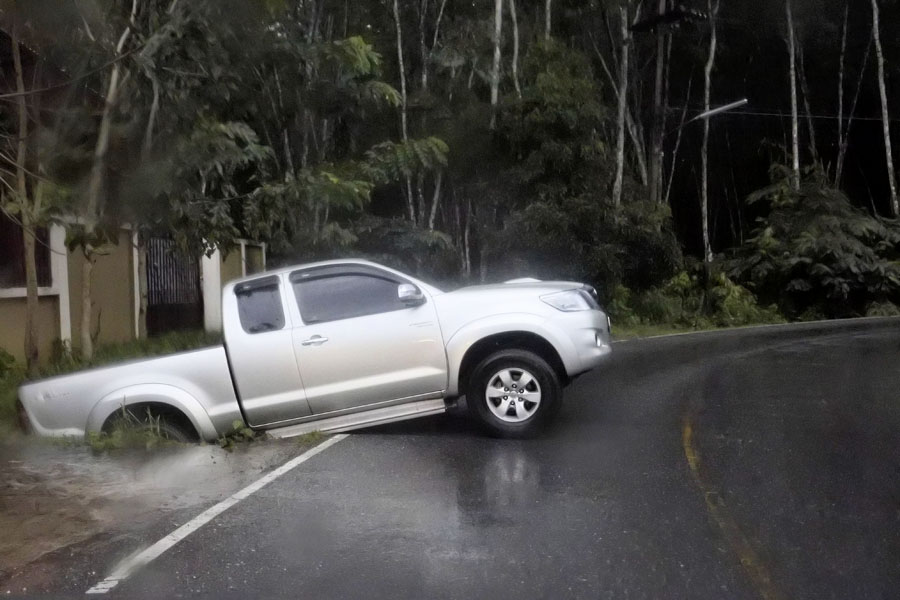Living In Thailand Blog
Wednesday 9th December 2015
Corrupt officials thieves, traitors, Prem says in anti-graft address
Thailand's many social problems are well known, but it always interests me to see actual figures and statistics being quoted. Privy Council President General Prem Tinsulanonda has been speaking out about the problem.
"Prem quoted statistics from the Thai Chamber of Commerce that the country loses about Bt161 billion to corrupt state officials and politicians."
I assume this is per year.
Prem is regarded as one of Thailand's cleanest politicians ever.
From the book 'Corruption and Democracy in Thailand':
"In 1963 another corruption scandal had emerged. The public learned that Sarit Thanarat, the military ruler who had recently died, diverted around 2,784 million Baht (approximately US$140 million) from public funds for his private use. (In 1994 terms this amounted to some 80 billion Baht.) Sarit's corruption had continued for many years without public knowledge and was revealed only after his death. During Sarit's lifetime few people were aware of the extent of this corruption. The military domination of government ensured that the corruption money was not only controlled within a small group of appointed politicians and bureaucrats, but was also hidden from public knowledge."
Even today, whenever I look at the Bangkok Post or Nation there is normally news of yet another corruption scandal. The latest corruption allegations concern Rajabhakti Park. Prem is absolutely right about the dangers of corruption and highlights some of the reasons why it is so rife in Thailand.
From the article:
"Thais see nepotism and corruption as normal. This attitude is dangerous and causes the country to lose huge development opportunities," he said.
However, there is one problem with the way in which he says it can be tackled.
"It is the duty of everyone. We will not see Thailand becoming transparent if people say, 'Opposing graft is none of my business,' or 'I do not want to create enemies,'" he said.
Unfortunately, it is much more than simply 'not creating enemies'. Some years ago I was chatting with a very clever university lecturer. He was fluent in four languages, including English, and could hold an intelligent conversation on any subject in English.
He was complaining about the air-conditioning in his new building not being effective. He told me the problem is that whenever a budget is allocated for a construction project, 20% of the money is siphoned off into back pockets.
As a result, there isn't enough money left to do the job properly and short cuts have to be taken. He told me that everyone knows what happens but they can't say anything. If they do, he told me, they put their lives at risk.

Privy Council President General Prem Tinsulanonda
Tuesday 8th December 2015
My apologies for sounding like a broken record at times, but for the carnage on Thai roads to continue unabated while no one does anything about it is completely insane. Minivan drivers are notoriously reckless and I have avoided travelling by minivan in Thailand for years.
Four die in Chon Buri passenger van crash
Quote from this report:
"Witnesses told police the van was travelling at high speed, and seemed to be racing another van, when the accident occurred."
This doesn't surprise me at all and it wouldn't surprise me if his van had a huge exhaust tailpipe sticking out the back and was plastered in 'Toyota Racing Development' (TRD) stickers. Racing on public roads is a favourite pastime in Thailand. As usual, the report says that he 'lost control'. I have been driving for 39 years (including a couple of Porsches along the way) and I have never 'lost control'. However, it happens in Thailand all the time.
I've mentioned several times before that Thai minivan drivers don't generally tend to be very pleasant people and the following video might illustrate my point. It was taken in Phuket where the driving is particularly aggressive.
The high-speed, aggressive style of driving and constant weaving in and out of lanes to get in front of the car ahead is typical. It's also not unusual for them to threaten other drivers if they can't get their own way. Many drive like this even if they have a van load of passengers or school children.
This is why there are so many road fatalities in Thailand and this is why I say that driving is the worst aspect of living in Thailand. There is no law enforcement and drivers like this have little - or no - fear of being caught and punished.
Another standard line in reports about road accidents in Thailand is 'the driver fled the scene'. They think they are big men when they are racing, but as soon as they are involved in an accident they run away like little children. Anyway, that particular line was missing from this report because the driver was one of the people killed. Some karmic retribution, at least.
I have seen hundreds of road accidents in Thailand and some have been fatal. Observing road accidents is one thing, but when you a body in the road covered with a white sheet it is quite disturbing. I have taken photos of only a tiny fraction of the road accidents I have seen. According to one survey, Thailand's roads are the second most dangerous in the entire world.

Wrecked minivan

Wrecked minivan

Car hits motorbike

Totalled Honda

Teenage motorcyclist

Motorcyclist
Monday 7th December 2015
Money is an obsession in Thailand and, without any doubt, it is the most important item in the Thai value system. When I pay for things I often try to give the correct money. I take large notes from my wallet and then rummage around in my pocket for the small notes and change. There have been occasions while I've been doing this where the shop assistant has started to pull the money from my hand before I've prepared it. This really annoys me.
I watch very little TV, but when I do I have been watching NHK World from Japan recently. What strikes me is the Japanese obsession with becoming an expert at any given task. I have watched a man making coffee, a man making tea caddies, engineers working out how best to complete a given task, and various other tradespeople and artisans.
They spend years obsessing on how to become better at what they do. It's understandable why so many quality products come from Japan and difficult to see how other countries can compete. Just ask an American car manufacturer. What isn't apparent is an obsession with money. In Thailand it is the reverse. Most Thais, including my wife, will simply look at ways to make money first and everything else is secondary.
Then again, this obsession is something that is quite understandable. All manner of consumer goods are available in Thailand and the poor and rich live side-by-side. Poor people are exposed to material wealth constantly and in a country where life is very hard being poor, having a little money can make life inordinately better. Salaries are very low for most people and there are few, or no, opportunities to better one's position in life.
The following is a fairly typical job advertisement:

Job advert
The advert doesn't specify a specific job, but the employer is asking for a female from 18-30 to provide general help. In Western countries it would probably be illegal to specify gender and age, but there is no concept of Political Correctness in Thailand. The salary is Bt300 per day.
At current exchange rates, Bt300 is about US$8.36 or GBP 5.54. That's per day, not per hour. The minimum wage in the US is 7.25 per hour and in the UK it is GBP 6.70 per hour for someone over 21.
Not all Thais earn this much. The Yingluck government was trying to introduce minimum wages of Bt300 per day for unskilled labour and Bt15,000 per month for graduates. These rates met with a lot of resistance from employers and I believe they have been abandoned.
I had a coffee and cinnamon bun in Starbucks last week, which cost me Bt180. That wouldn't leave much to pay for other things if I was earning Bt300 per day. Last month, my outgoings were a shade under Bt100,000 (yet again). I pay no rent and have no mortgage, car repayments or other debt. Granted, I replaced an air-conditioner (Bt31,000) and paid for the second term of my daughter's schooling (Bt11,000), but additional expenses such as these seem to crop up every single month.
I now see a very good doctor every month to keep my asthma problem under control. His main job is at a public hospital. He studied at medical school for six years and he has accumulated 12 years' work experience since he graduated. His salary is only Bt27,000. He works part-time at a private hospital and also has his own clinic because his main salary is insufficient to live on.
The going rate for a foreign English teacher in provincial Thailand is Bt30,000 a month - more in Bangkok. If you rent a comfortable apartment, like to eat decent food, want to experience some of the pleasures available in Thailand, want to buy things, and want to travel around in your free time, this amount doesn't go very far. You can complain, but it won't do you much good.
As a foreign teacher you will be earning a lot more (and working a lot less) than your Thai colleagues at the same school. You will also be earning more than experienced doctors, therefore, there won't be much sympathy among Thais about your low salary.
One question I hear a lot is, "How do Thais manage to survive?" When I worked at a public university faculty, every member of staff had another source of income. Some owned rubber plantations or apartment buildings, some sold food or drink, and one (who lived next door to a slum area) had converted his house into an electricity sub-station and provided electricity to the slum dwellers.
I don't think there is a teacher in Thailand who doesn't do tutoring outside of hours. Thai teachers earn very low salaries and need more income. A female teacher at the school where I used to work told me that her salary was Bt9,000, but that she could earn an extra Bt21,000 by doing tutoring. She had to work every evening and all weekend just to get the same salary that a foreign teacher would earn working regular hours Monday to Friday.
I don't know what the inflation figures are for Thailand, but the real cost of living has increased dramatically in the past few years. My wife buys food at the local fresh markets and is always returning home stunned at how much she had to pay for a fish or some vegetables. These markets are the cheapest places to buy food in Thailand.
Whenever we shop at TOPS the bill is always over Bt5,000 and we never seem to buy that much. Prices continue to go up, but salaries remain static. A week or two ago she came to ask me if I could raise her allowance next year. I asked her where the money would come from, to which she replied she didn't understand. I told her that she had asked me for more money, but who could I ask? My income is fixed and I already spend far more than I should.
For many Thais, the only possible way to increase their earnings is to go abroad or go to somewhere in Thailand where there are a lot of 'rich' foreigners. Moving abroad is difficult unless it is through marriage to a foreigner who will support them, but many Thais go to places like Phuket or Pattaya where there are more earning opportunities.
Prostitution is a huge industry in Thailand but, considering how much a girl can earn by selling her body compared to a regular job, it isn't really surprising, especially with a culture in which people are expected to take care of their old and young relatives.
I moved out of my second apartment because the landlord was continually money-grubbing and it really annoyed me. What annoyed me with him is that he already had money. Thais who already have money are often the most greedy.
There is also a degree of hypocrisy among foreigners living in Thailand, including myself. On a smaller income than I had when I was employed I can lead a much better life in Thailand than I could in the UK, but this is only because salaries are so low. When I'm tired from walking and want to sit down and relax while a Thai girl massages my feet for an hour for Bt200, do I then highlight the low salaries? No. Would it help if I made some kind of political protest and stopped giving massage girls my business? No.
Life in Thailand isn't always fair, but that's the way it is and the way it will continue to be. I try to treat people fairly and wouldn't abuse or take advantage of anyone who was financially disavantaged. Unfortunately, not all Thais think the same way and there is a lot of exploitation in the workplace. Life isn't always perfect in Thailand, but most foreigners in Thailand have more comfortable lives than most Thais and to be able to live in Thailand comfortably without needing to work is actually quite a big privilege.
I try to remember this, but I find it very disappointing when you give this same privilege to a Thai and absolutely no gratitude is shown in return. This is another aspect of Thai behaviour that I find difficult to understand. No matter how much you give, it never seems to be enough and they only ever want more.
Sunday 6th December 2015
To those people who check here regularly I apologise for the lack of updates recently. The little free time that I get to myself these days has been taken up with jobs in and around the house and I just haven't had time to do anything here. I've also had some problems with Google, which I may write about later.
There were police in my housing development on Monday and I found out that a couple of houses had been broken into in the early hours of the morning. Apparently, the burglars were active at around the same time I had woken up to deal with a mosquito that had got into the bedroom and was feasting on me and my daughter. Perhaps it was switching on lights at 2am that kept the thieves out of my house?
They don't seem to have stolen a lot, but the confident manner in which they strolled around looking for easy targets is concerning. They also rummaged around the glovebox of a neighbour's car, but didn't find anything worth stealing. The car window was open because the window motor is broken. I have a bad habit of leaving my car unlocked overnight so will now need to check that it is locked before I retire to bed.
Despite what I was saying about more people choosing to live in gated communities with security guards, the security guards don't seem to be terribly effective. They probably deter casual opportunist thieves, but any thief is determined enough to get in will get in. Burglars even got into Simon Cowell's £35 million house this week while he slept.
When foreign gangsters abducted another foreign gangster in Pattaya last week they threatened the security guards and another way to get around security guards is to bribe them. I can't really blame them. For such a low salary, why should they put their lives on the line?
This doesn't make me feel good, but - just like there being a lot of venomous snakes around - it's something that you have to accept if you live in Thailand. As Mulder said, petty crime and violence are endemic in Thailand.
A few months ago I parked my car outside the school ready to collect my daughter. I tend to leave early so that I can get a parking space, which are difficult to come by near the time when the kids finish school.
I noticed two Thai females sitting on some grass ahead of me and they watched me leave the car. I walked towards them and they smiled at me, however, if you are a foreign male in Thailand this isn't unusual behaviour. What was unusual is that when I was about to pass them they asked for money.
The only people that ever ask for money where I live are those who are obviously down-and-out and living on the street. These girls didn't fit that category at all. This request took me by complete surprise and I didn't have a prepared answer. I just said no and walked on.
When I returned, the two females had gone but I noticed some new damage on my car that I was 99.9% certain wasn't there before. I put two and two together and came to the conclusion that this was an act of revenge for not giving them money. Anyway, I just let it pass and didn't even mention the incident to my wife.
My wife, like the majority of Thais, is a social media addict and while playing with her phone the other night she called me across to look at something. It was a picture of the two girls I had had the problem with. Their picture was being shared around social media along with warnings.
They normally target females on their own or females with young children. Their modus operandi is to ask for money and if money is handed over they smear some kind of chemical on to the person's hand that makes them feel sleepy. They then assault and rob the person.
Apparently, the police have been informed but have no evidence and therefore can't do anything. I too have no clear proof that they damaged my car, but I am convinced it was them. There was even a photo of one of the girl's national ID card being passed around social media. They are from Yala province.
One of my neighbours throws out her garbage without using plastic garbage sacks. I have seen her several times emptying her own rubbish bin into the communal rubbish bins and it is disgusting. Along with the loose food there are also used nappies (diapers). The food sticks to the rubbish bin and the smell attracts hundreds of flies. A few months ago the bins were crawling with maggots after the flies had laid eggs. This can't be much fun for the garbage collectors, either.
In the UK I, or another resident, would simply talk to the inconsiderate neighbour. However, after living in Thailand for a long time, I have found out that Thais don't take the same approach. To do so would probably result in an act of revenge. I don't think I have ever known a race as vengeful and vindictive as the Thais. They are very easily slighted and the normal reaction when they feel slighted about anything is to take revenge.
My car was scratched after I refused to hand over money. A friend of mine is a keen cyclist and was cut up badly by a young Thai male. He simply glared at the kid to show his disapproval. Later on he discovered that some plant pots outside his house had been broken and he concluded that it was the same kid.
It might be a petty act of revenge like this or it might be a lot worse. With so many Thai taxi drivers carrying around metal bars in their cabs it makes you very wary about doing anything that might upset a taxi driver.
Books on Thai culture will tell you that there is a strong culture of non-confrontation in Thailand. This is true for some people, but patently untrue for many, who are highly aggressive and highly confrontational. Many people are not so much non-confrontational, they simply realise that to confront anyone about anything may result in an act of violence.
I therefore decided against talking to the woman myself and thought about what I could do. I thought about having a word with the staff at the development company who also manage the running of the development, but I decided against this as well.
When I lived in an apartment I had some big problems with inconsiderate neighbours and discovered that talking to the management is a waste of time. They are very good at empathising with the problem, but they won't take any action. They will either say they will do something, but won't, or when I was at the apartment they told me not to worry because my neighbour would be moving out soon.
Their reluctance to do anything is either because of the greng jai aspect of Thai culture that I wrote about before or because they too are afraid of retaliation.
Having failed to arrive at a suitable course of action, I decided to ask my wife. After all, she is Thai and will know exactly what to do.
Her reaction? She was furious that I had brought up the subject and refused to talk about it. The neighbours have two homes and aren't there all the time, and she thinks that this makes it OK. They may not be at their house every day, but the flies are in the garbage bins every day.
The conclusion is that the problem still exists and no solution has been put forward on how to resolve it. This is typical Thailand. Problems just don't get resolved
What can happen over time is the same as happened to the proverbial camel with the broken back. Lots of small irritating problems can eventually be compounded into a major problem. A few years ago a guy in Phuket shot his neighbour about the noise and dust from building work he was having done. It turned out that there had been previous problems and this was the final straw.
It's a very strange culture. Thais all want to do their own thing and don't really give much consideration to people around them. They expect everyone else to be greng jai and to let people do what they want to do without saying anything.
No doubt, this system worked satisfactorily for many years when the population was fairly small and when most people were scattered throughout the land working in agriculture.
Since 1970 the population in Thailand has just about doubled (from just over 35 million to just over 70 million) and during the same time there has been enormous changes as fewer people work in agricultural and more and more have moved from the countryside into the cities.
In many urban areas Thais now live very closely together, but continue to behave as if they are still in the countryside with very few neighbours around. When you analyse the extremely poor driving standards and the way in which many Thai drivers drive with absolutely no consideration for other people it is basically the same thing.
I don't feel overly concerned in Thailand about violent crime, although it does exist, but there's an awful lot of petty crime and some thoroughly inconsiderate behaviour. As the population continues to increase and urban areas continue to become even more crowded I only suspect that it will get worse.
For a country in which every young male thinks he is a racing driver, the driving standards are exceptionally poor. I came across this scene as I was doing the school run recently.

Pickup truck in a ditch


